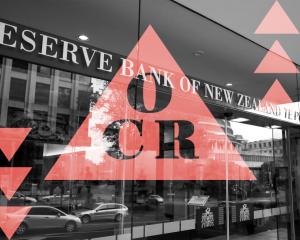Night ’n Day Foodstores is changing what Kiwis expect from their corner dairy.
The Dunedin-based group, which has 53 mostly franchised stores plying their trade across the country, came in at number 19 in this year’s Deloitte Fast 50, following a two-year revenue growth record of 280%.
New general manager Matthew Lane said growth had largely been as a result of the company’s expanded footprint, good positioning and a popular product mix.

‘‘There are three key pillars to this business — our milk bar (ice cream products), food fresh options, including our deli options, and coffee.’’
For all its growth, the company remains in family hands and its flagship is still the original shop in Regent Rd, which has been servicing University of Otago students and locals for the past 35 years.
Back then it was known as the Regent Foodstore and it was the first to be open round the clock.
Initial expansion was into two new stores in Invercargill and Christchurch.
‘‘What that did show my parents was the difficulty of running geographically isolated stores,’’ Mr Lane said.
In 1990, Night ’n Day shifted to a franchise model, adding Arrowtown at the same time.
Arrowtown remains a popular store and the only one with an alcohol licence.
Following steady growth over the next decade, the company expanded across the Cook Strait in 2011, on the strength of a deal with the 21 Gull petrol stations on the North Island.
That was followed by an additional three stores in Central Otago and four stores in Wellington.
Mr Lane, who now manages 25 staff at the company’s Dunedin based HQ, said it was not about growth for growth’s sake.
‘‘We aren’t deliberately trying to hit growth targets. We have a great platform in our systems and support for expansion, but new stores will come on a selective basis.’’
Rather the company iswas more focused on doing things that its customers wanted, he said.
To that end, the company continued to reinvent its product range and had been a quick adopter of new sales ideas.
‘‘The link with Uber Eats was an important advancement for us, as was the installation of real fruit ice creams,’’ Mr Lane said.
‘‘We are living in a Netflix economy. People are time-poor, so what we are offering is convenience to the front door.’’
A major focus had also been on upping Night ’n Day’s coffee trade, under its ‘‘helova cafe’’ brand.
‘‘The perception — and rightfully so in some cases — is that corner stores are the last place you’d pick up a good coffee.
‘‘We want to change that mindset, and that starts in store, so we use trained baristas, quality coffee and Italian machines.’’
Despite its franchise model, the company did not promote a ‘‘one size fits all’’ approach.
‘‘We have centralised ordering logistics, marketing, accountancy services and we do support particular brands — but franchise owners are able to add their own touches to their stores.
‘‘What sells well in Dunedin may not move as quickly in a place like Wellington, so we need to be adaptable,’’ he said.
Night ’n Day’s ‘‘$2 Tuesday pies’’ and its pending ‘‘free coffee February’’ initiative were an important part of that, he said.
The company also actively strove to ensure a direct connection with its local communities, for example through supplying $1 ice creams to schools’ wellbeing initiatives, such as Otago’s rainbow runs.
‘‘It may sound simplistic, but what is good for our community and our franchise owners is good for us.’’












